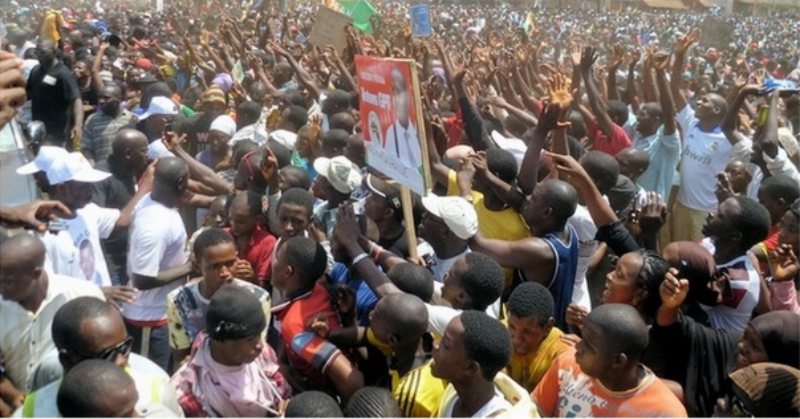 Mass protests in Conakry (Guinea) on 27 February 2013 © UFDG-Online/afrol NewsSociety | Politics Ethnic violence in Guinea ahead of polls
The UN and the European Union (EU) today stated their concern after the breakout of new violence in the Guinean capital this night, saying the fear the electoral process is getting out of control. President Alpha Condé had ordered parliamentary elections to be organised on 12 May this year. The polls have been postponed several times since its original schedule in 2011.
While the riots and violence started in the Conakry suburb Hamdallaye on Wednesday, they spread into the more central parts of the capital during the weekend. According to UN sources, "at least five people, including one police, have been killed and 172 people have been injured by stones hurled by protesters or by live fire from security forces. Three of the deaths and at least 12 injuries were caused by the use of live ammunition." The local UN office in Guinea reports that several of the protesters are attacking persons "based on their ethnicity, while others looted shops as overstretched security forces struggled to maintain order. Private homes, vehicles and other property were also attacked, and in some cases destroyed,” the UN reports. President Condé has appealed to the population to maintain calm and order, and the calls have been repeated by several political and religious leaders, including some from the opposition. But on the other hand, the main opposition forces remain angered by what they claim to be a lacking willingness by the President to meet their demands, calling Mr Condé's desire for a national dialogue for "empty words". The opposition still insists on postponing the legislative elections until a non-partisan framework for the polls has been achieved. By staff writer © afrol News - Create an e-mail alert for Guinea news - Create an e-mail alert for Society news - Create an e-mail alert for Politics news
On the Afrol News front page now
|
front page
| news
| countries
| archive
| currencies
| news alerts login
| about afrol News
| contact
| advertise
| español
©
afrol News.
Reproducing or buying afrol News' articles.
You can contact us at mail@afrol.com









